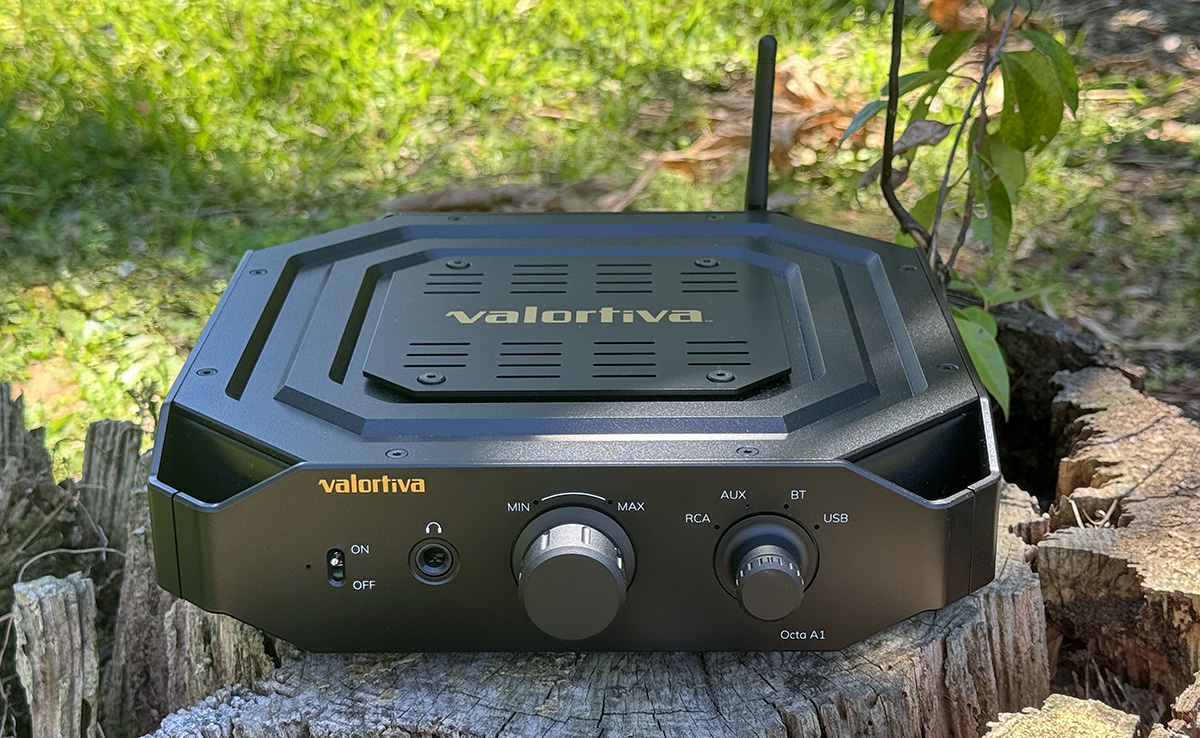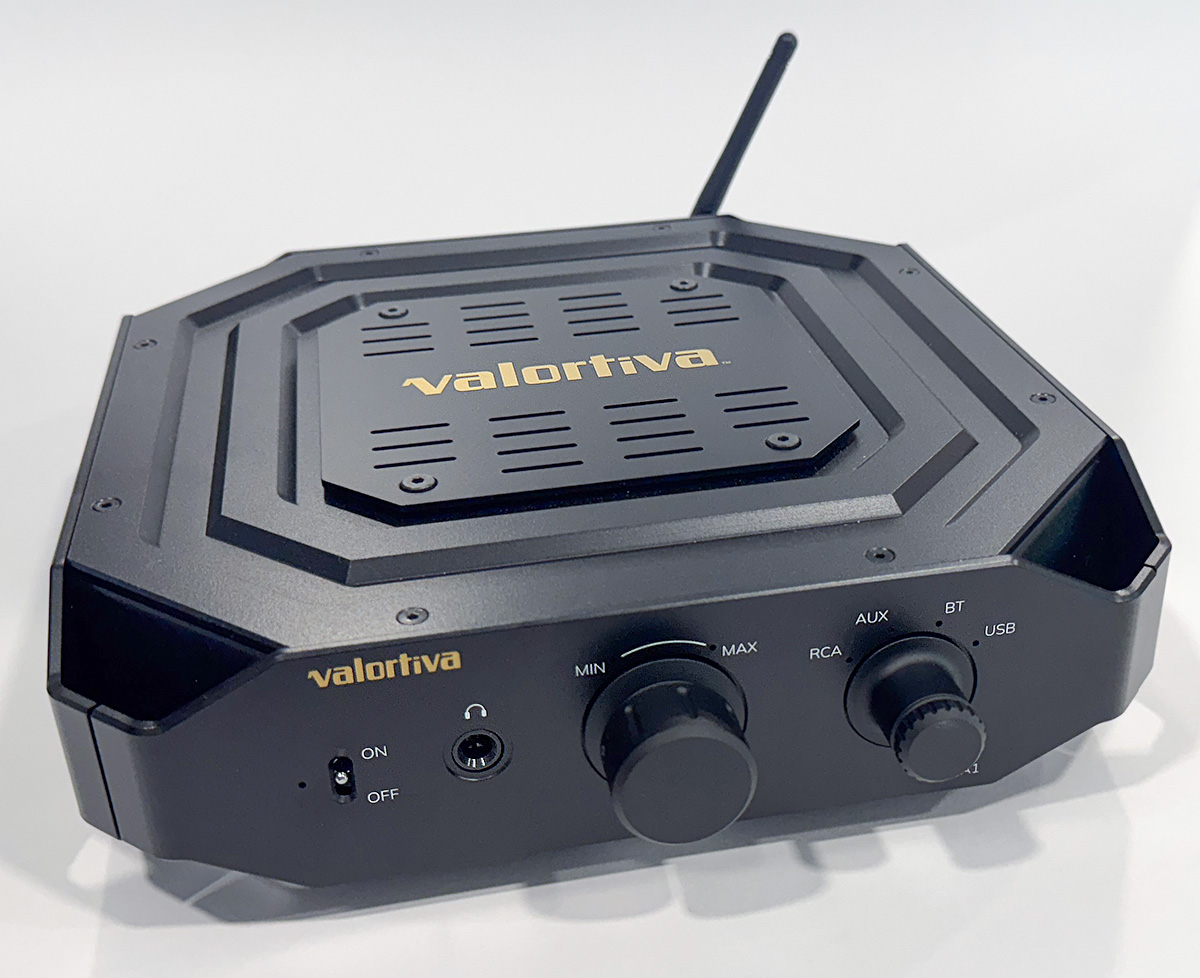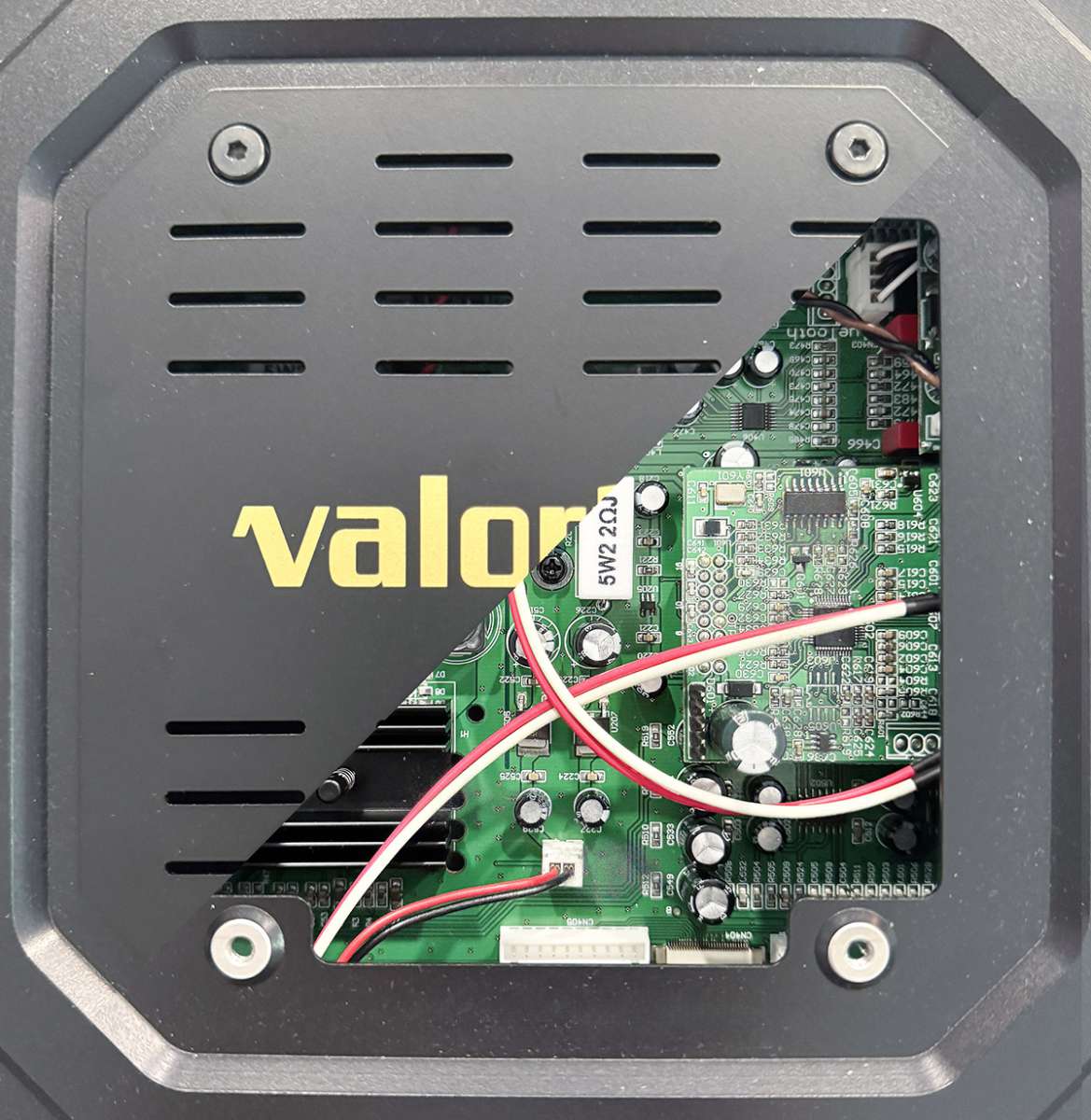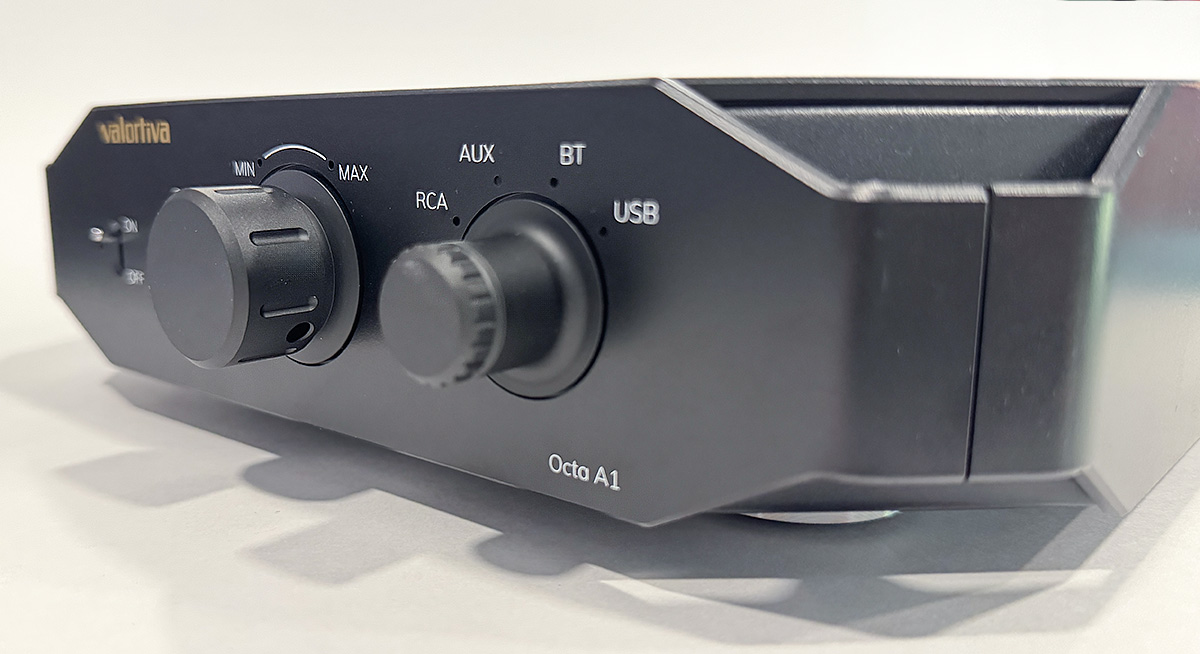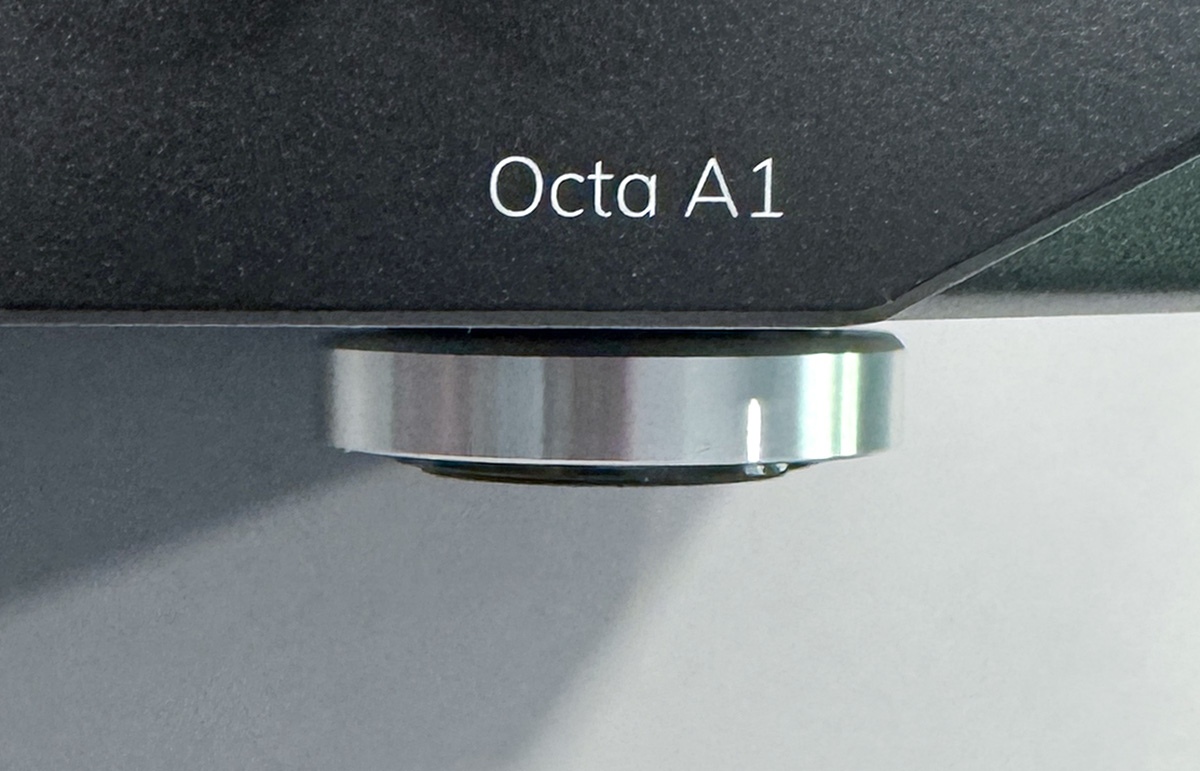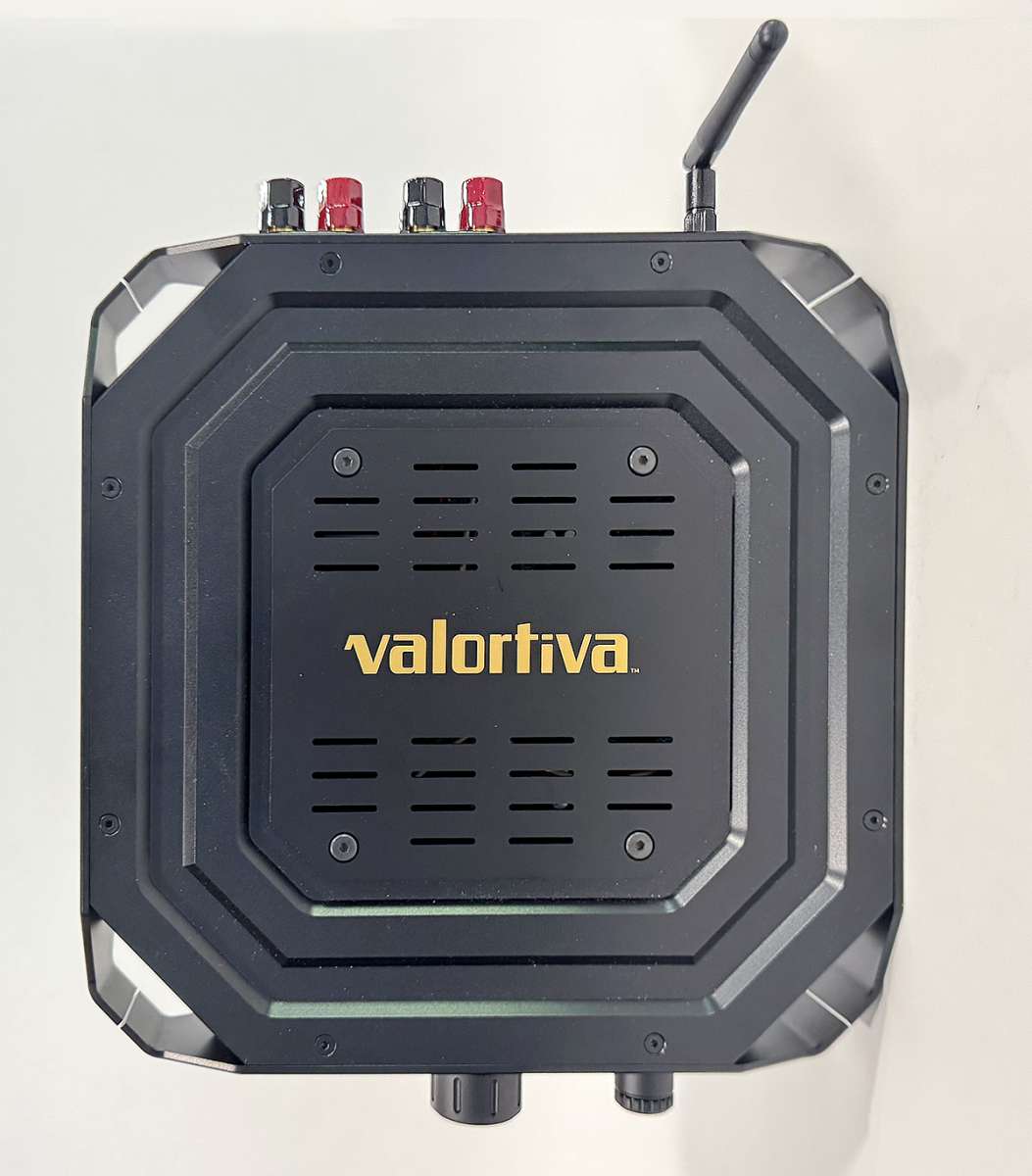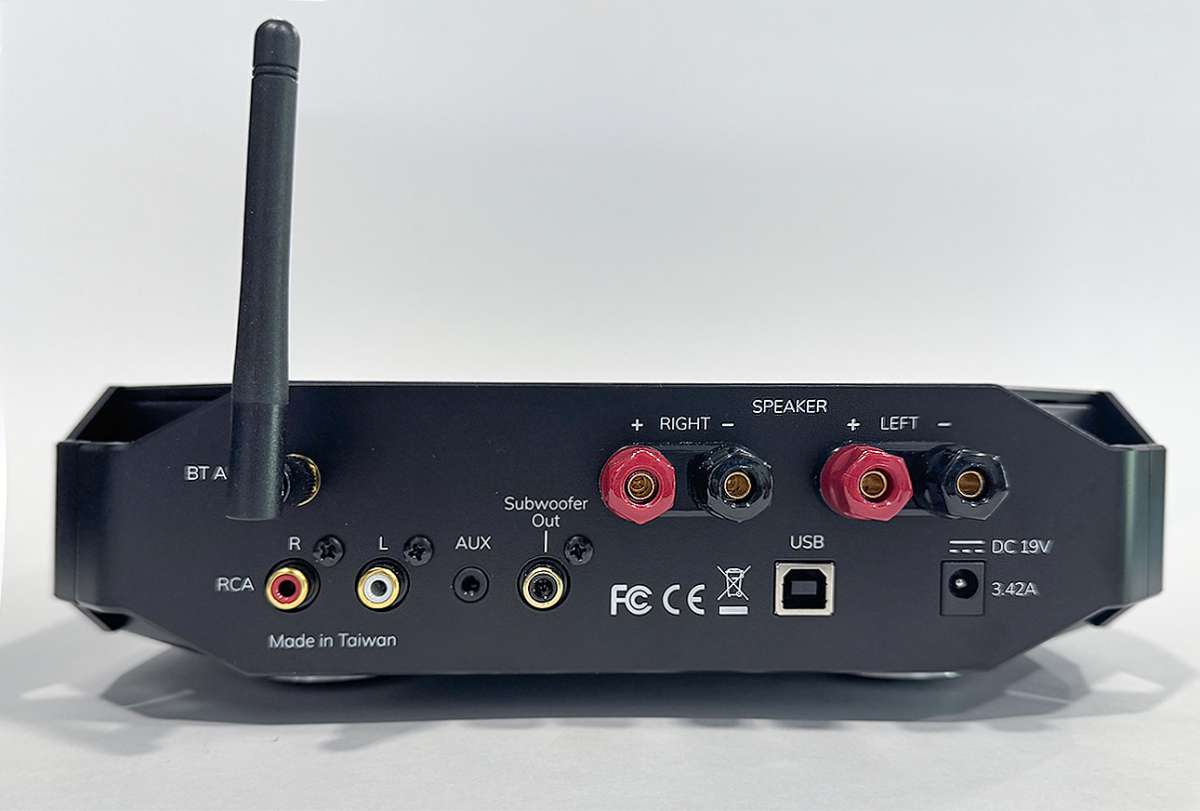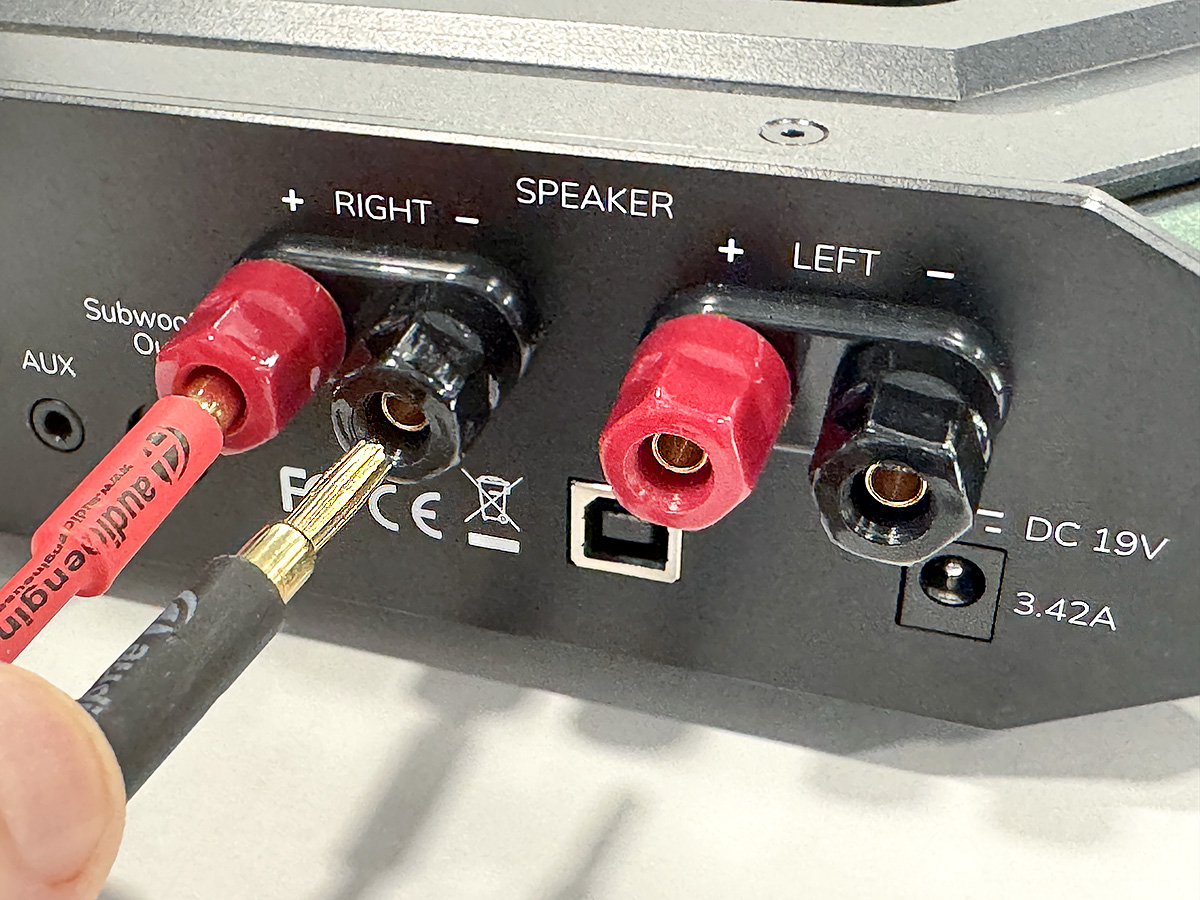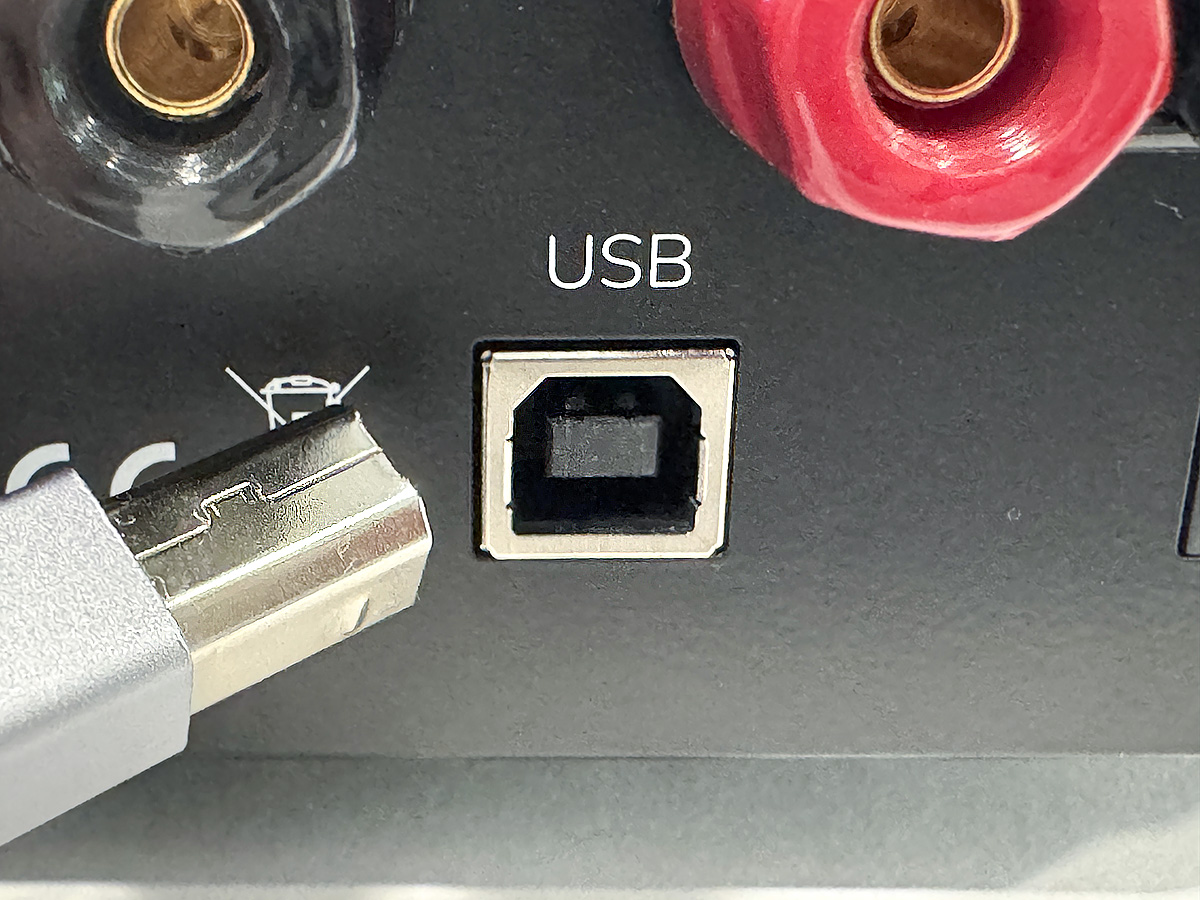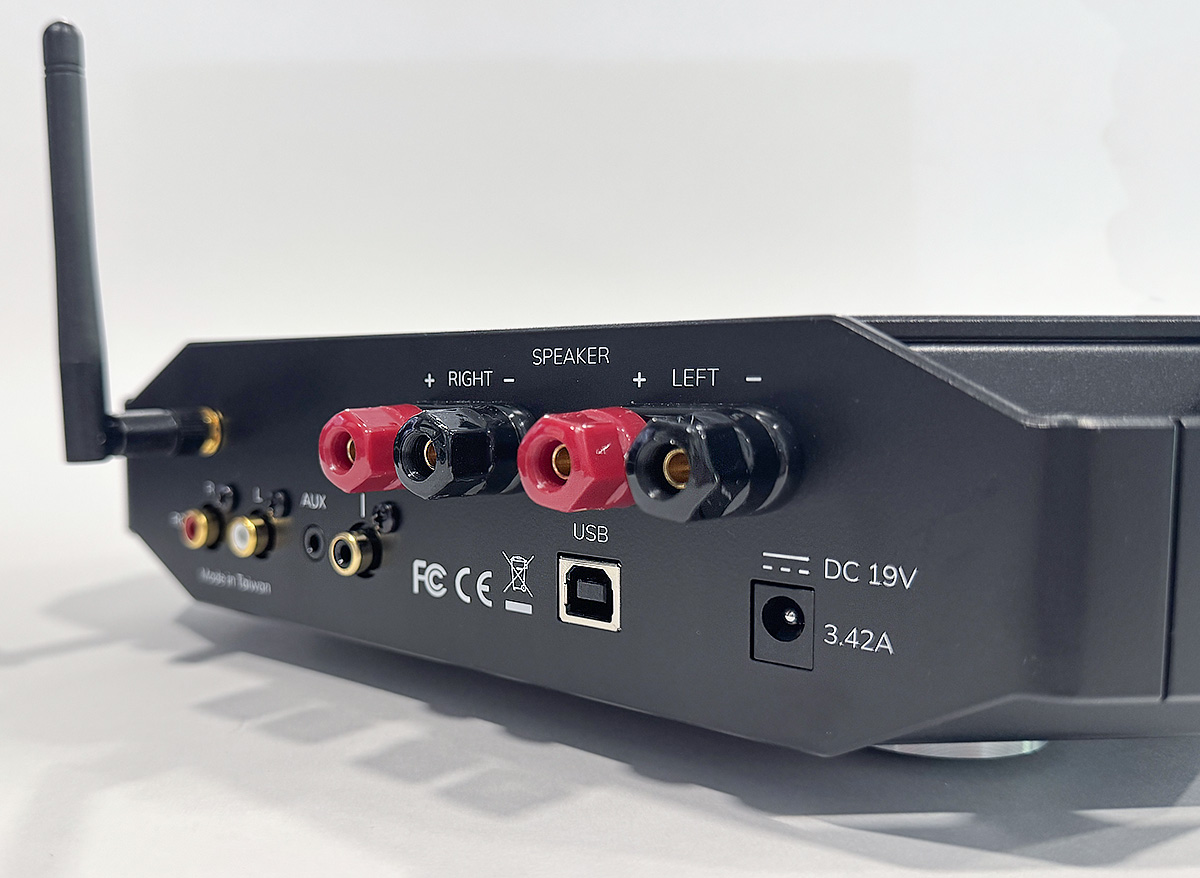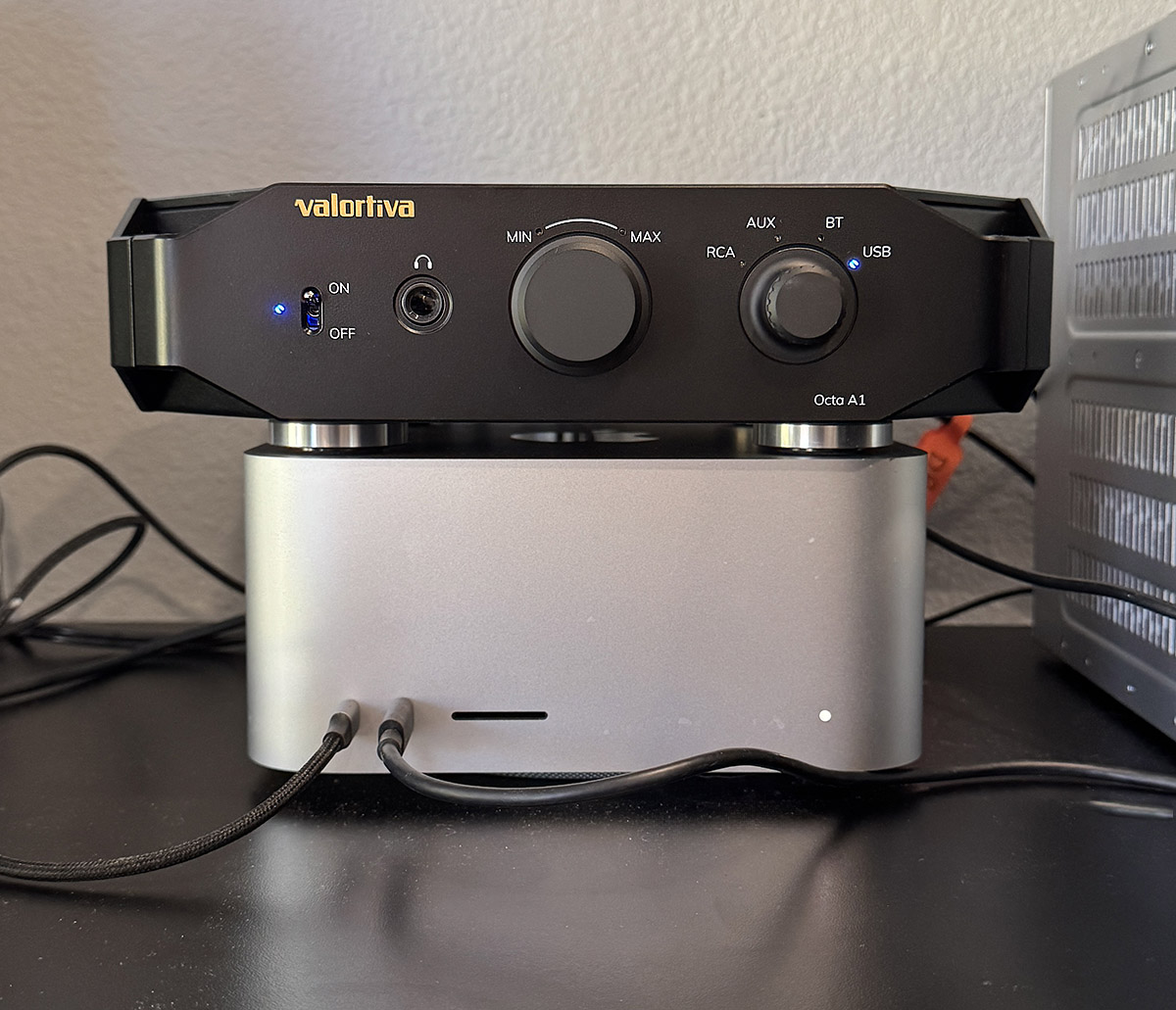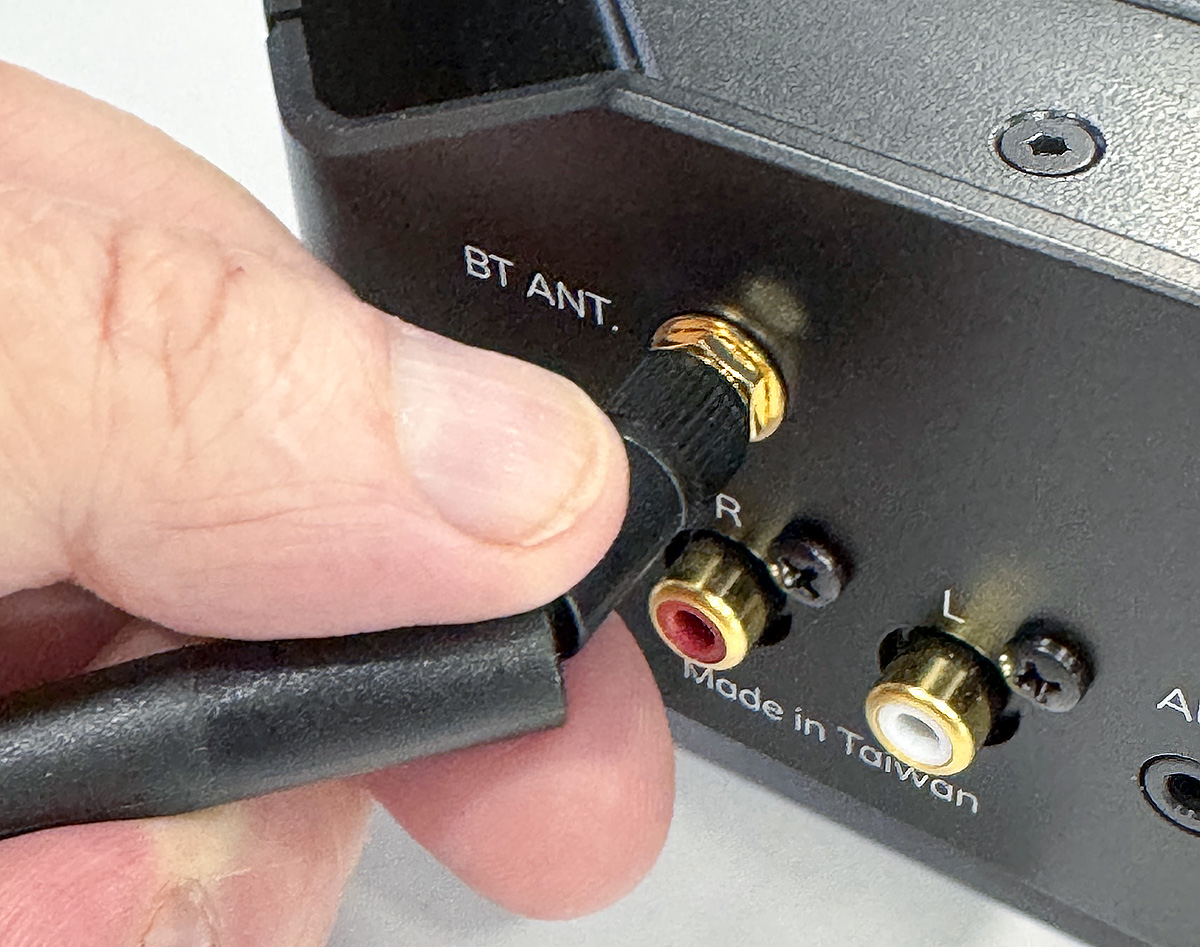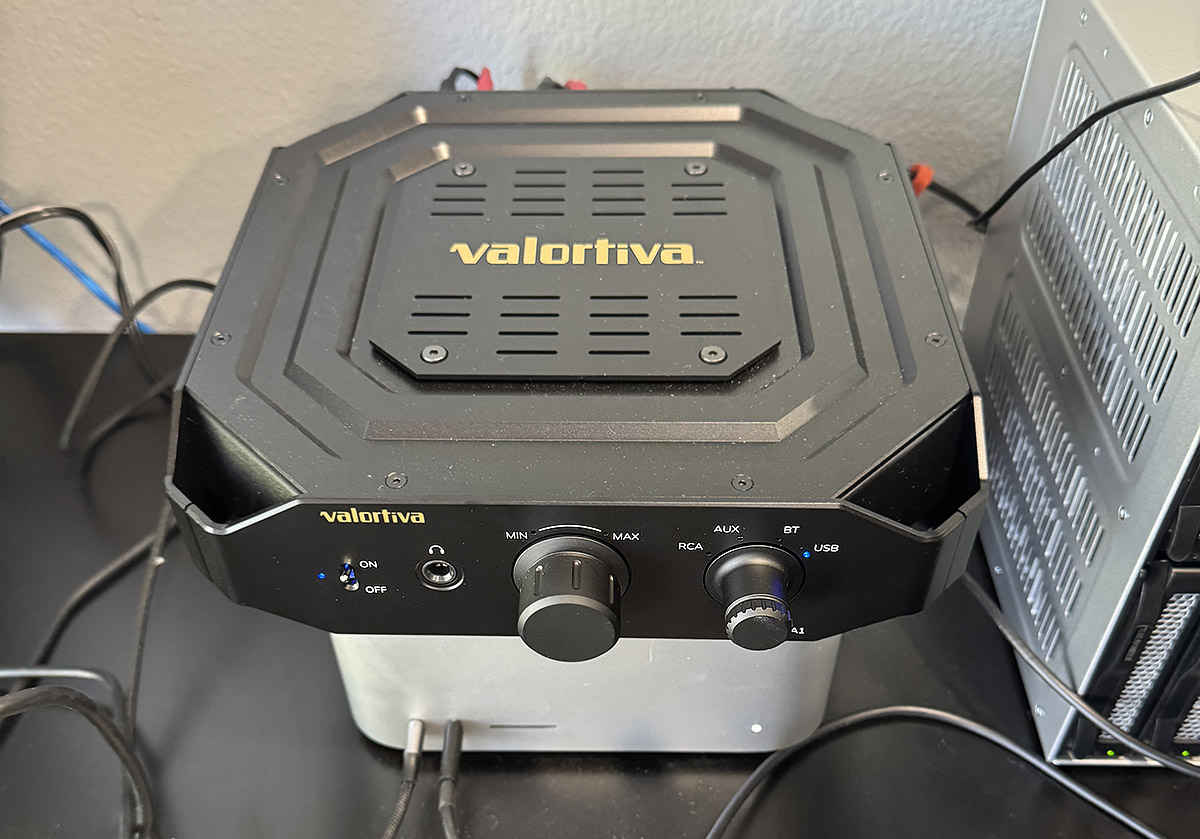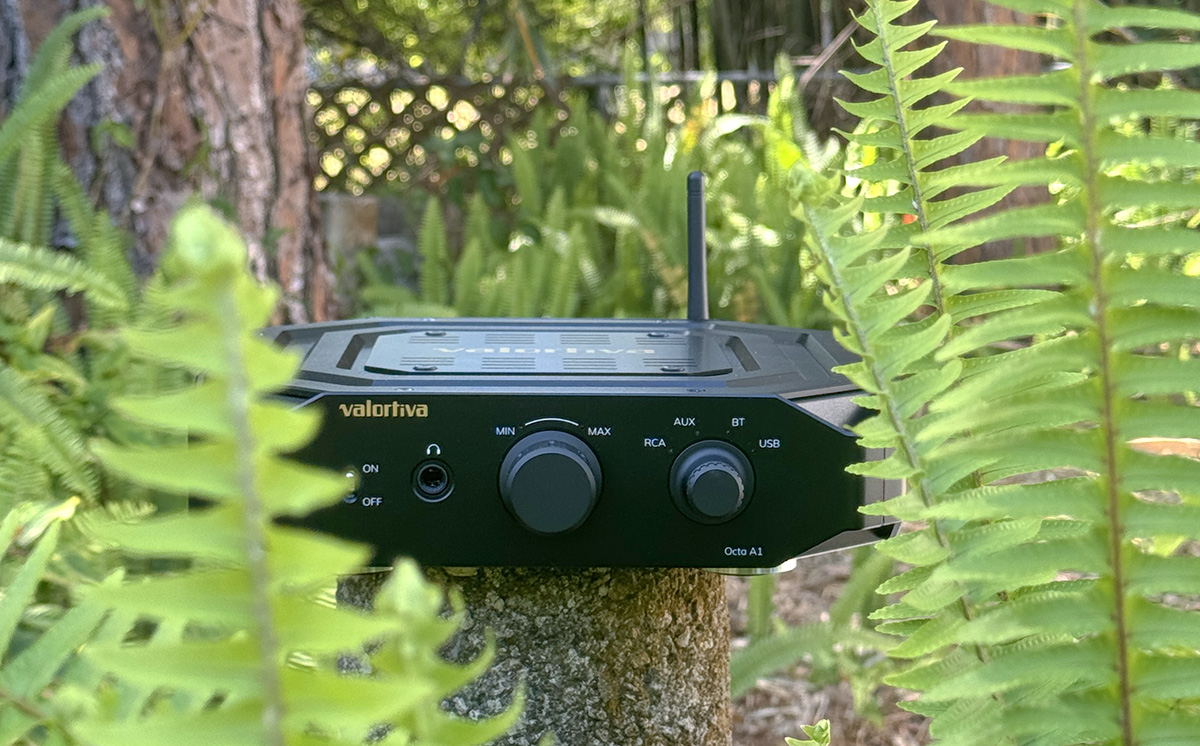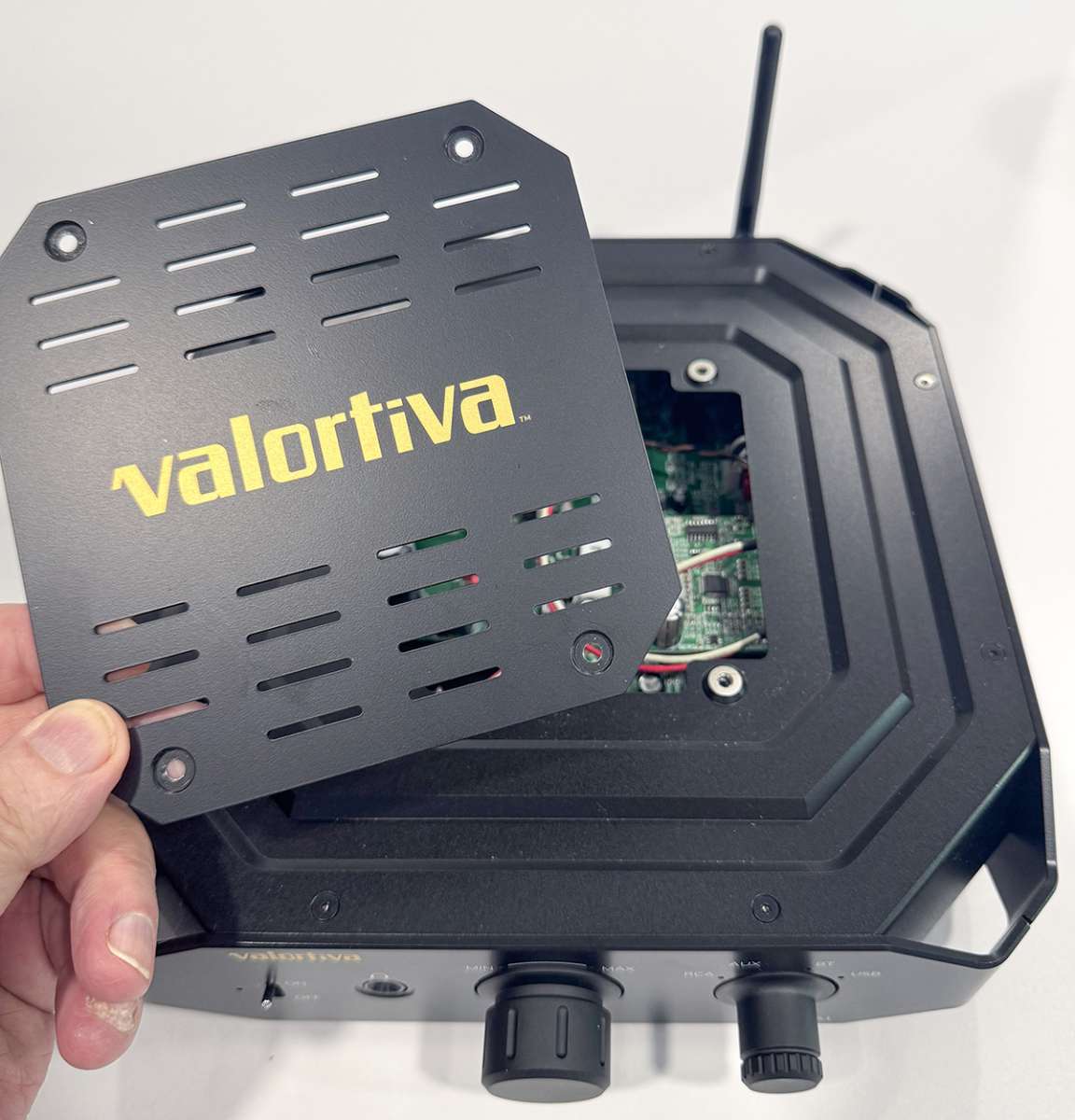REVIEW – For years (like, forever), my go-to speakers for my computer set-up have been powered. Powered simply means that the speakers have a built-in amplifier (all speakers require a power source to produce audio). Passive—as opposed to power—speakers, have no power themselves but must be connected to a power source such as a separate amp or stereo receiver to produce audio. There are pros and cons to each speaker type, but most computer speakers are powered—it’s simpler and saves desktop space. Computers cannot provide amp power to passive speakers. All this brings us here: the Valortiva Octa A1 Integrated Amplifier. To use them meant I needed passive speakers—which I happen to have. So after transferring to passive speakers via the Octa A1 amp, how does it sound? It sounds wonderful!
⬇︎ Jump to summary (pros/cons)
Price: $399.00
Where to buy: Valortiva (save $50 with code: VGADGETEER expires 5/30/2025) or Amazon
What is it?
The Valortiva Octa A1 Integrated Amplifier is a compact, powerful source that can drive most speakers. It features 2.1 audio (no surround sound) at 35 watts max.
The octagonal minimalist design should fit most decors, and won’t take up much room on a shelf or stereo table. While the case is black, there are optional color accents available.
The Octa A1 has features such as USB, AUX, and RCA inputs, Bluetooth, and Subwoofer output. There is no built-in phono preamp, so a turntable would need a phono stage to work. Speaker connections are binding posts (twisting wires) that also accept banana plugs (what I’m using).
What’s included?
- Octa A1
- Power cord (depending on the country of purchase)
- Power supply
- User manual
- Bluetooth antenna
Tech specs
- Input: RCA, AUX, Bluetooth, USB
- Output: Headphone, Subwoofer
- Power (4 Ohm Load): 35 W max
- Dimensions: 9.8 x 2.7 x 9.8 (W x H x D inches)
- Weight: 4.6 lb.
Design and features
Let me start by saying as someone who once owned over 3,000 albums, I have no nostalgia for analog music. I now own no albums. I stream 95% of what I listen to through Apple Music’s subscription. You can’t take it with you when you die, so why not “rent” the whole record store? I do miss the covers, though. OK, enough ranting.
The Valortiva Octa A1 Integrated Amplifier may or may not make your speakers sound noticeably better. The Octa A1 can add clarity and soundstage to existing speakers, but the majority of necessary audio improvements are to replace the speakers themselves—usually the weakest link. In my experience, the Octa A1’s main advantages are its smaller size, convenient button arrangement, and overall build quality.
It is a bit unusual looking, but not in a bad way. The design just doesn’t follow that traditional stereo gear look. Its vented aluminum case is wrapped in a color “band” where controls and ports are placed. This band is sold as Black, White, or Gold. Valortiva does offer a color option of almost any color you desire, but it’ll cost ya. Choosing an optional color adds $300, almost doubling the price of the Octa A1. Ouch. Note that the color option is a hand-made process.
The Octa A1 setup consists of making the necessary connections and turning it on. The back panel consists of the usual suspects. A pair of Left/Right speaker terminals can connect via twisted wire or banana plugs. No speaker wire is included in the box. In fact, no cables are included, period. You’re on your own.
Analog RCA inputs are on the back panel for connecting CD/DVD players, turntables (with built-in phono pre-amps), and audio streamers. There’s an analog AUX port for hard-wiring audio devices like DAPs, smartphones, or other sources that can utilize AUX.
The single digital input is an older USB-B design (similar to hardwired USB printers). USB-C would have been a better future-proofing choice. I imagine many people will use Bluetooth. The Octa A1 incorporates A2DP Bluetooth. While this isn’t the latest aptX Bluetooth, I’m not sure it matters. Bluetooth has improved dramatically over the past few years. Apple doesn’t use hi-res BT in its iPhones or iPads, and I can’t tell the difference anymore. Even so, hard-wired via USB is the best connection, mainly because the Octa A1’s better DAC is being used bypassing the built-in DACs on i-devices or Macs.
Switching between AUX, RCA, Bluetooth, or USB is done by a front knob. It’s an intuitive method, but the knob turns a bit too easily if bumped. Volume is controlled by a central knob. This knob never stops turning in either direction making it difficult to figure out where the volume is set.
This may not be fair to Valortiva, but I’m not using the Octa A1 in a traditional sense. It’s not placed where a receiver may have previously been. Instead, I decided to have the amp power a pair of passive Bowers & Wilkins 607 speakers sitting on my computer desk. The Octa A1 sits right on top of my MacStudio.
After years of listening to my large—but great—Shinola-powered speakers, I had grown accustomed to the sound. Since those speakers are powered, all they needed was a USB connection, and voila—music! This is different. The Octa A1 provides the power, so they will only work with passive (not self-powered) speakers. I mention this important difference because connecting an amp such as the Octa A1 to powered speakers can damage them. You’ve been warned.
I’ve always been curious how the B&W 607 speakers might sound being used as computer speakers, but it always remained a curiosity because my Mac does not power passive speakers. Enter the Octa A1 amplifier. Once it arrived, I connected it via USB, connected the 607 speakers, and plugged it in. What I heard was not how the previous Shinola speakers sounded. My music didn’t sound better. It didn’t sound worse. It just sounded “different”. I wasn’t sure why—and still don’t know. But I do know that I like it—a lot. Maybe the Valortiva amp and/or DAC is a better quality than the built-in amp of the Shinola speakers. I have no idea. The bottom line is, “Da•n, this sounds good!
Also, since I’m using Apple Music fed to the Octa A1 via USB, it is in hi-res lossless quality. I can crank up the volume with little worry of diminishing quality or digital distortion. The clarity and musical presence are amazing—at any volume.
Final thoughts
After receiving the Valortiva Octa A1 Integrated Amplifier, I’ve been listening to music more while I work. Music sounds good without any audio fatigue setting in. It doesn’t even need to be loud (my preferred method) to cause an emotional impact on me. This combo of the Octa A1 paired with my Bowers & Wilkins 607 speakers via USB from my MacStudio is a winner.
What I like about Valortiva Octa A1 Integrated Amplifier
- Well built
- Easy to set up and use
- Cleary marked front panel
What needs to be improved?
- Front knobs can be too easily moved
- Old USB-B port
- No cables included
- Custom color options are expensive
Price: $399.00
Where to buy: Valortiva (save $50 with code: VGADGETEER expires 5/30/2025) or Amazon
Source: The sample of this product was provided for free by Valortiva. Valortiva did not have a final say on the review and did not preview the review before it was published.

